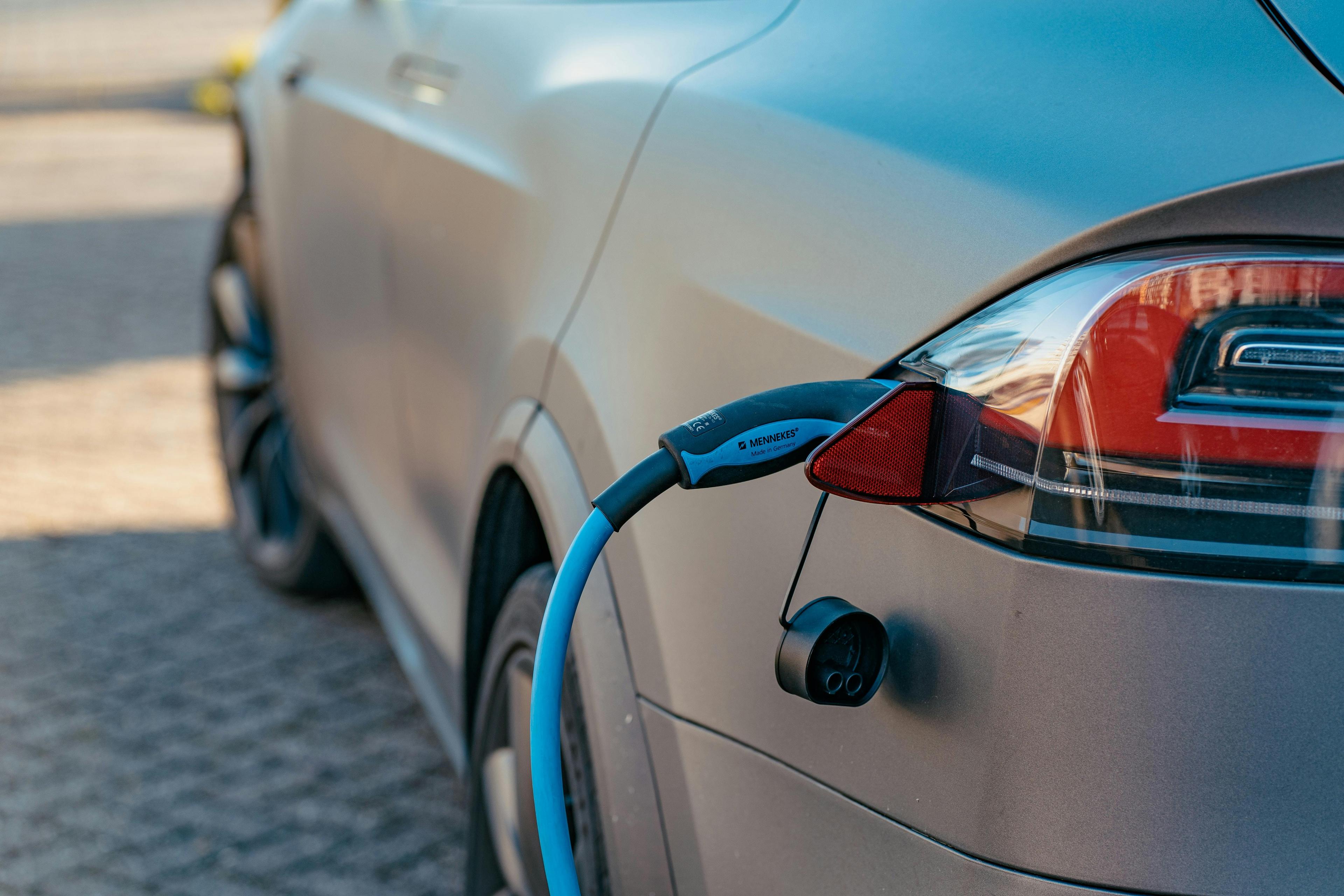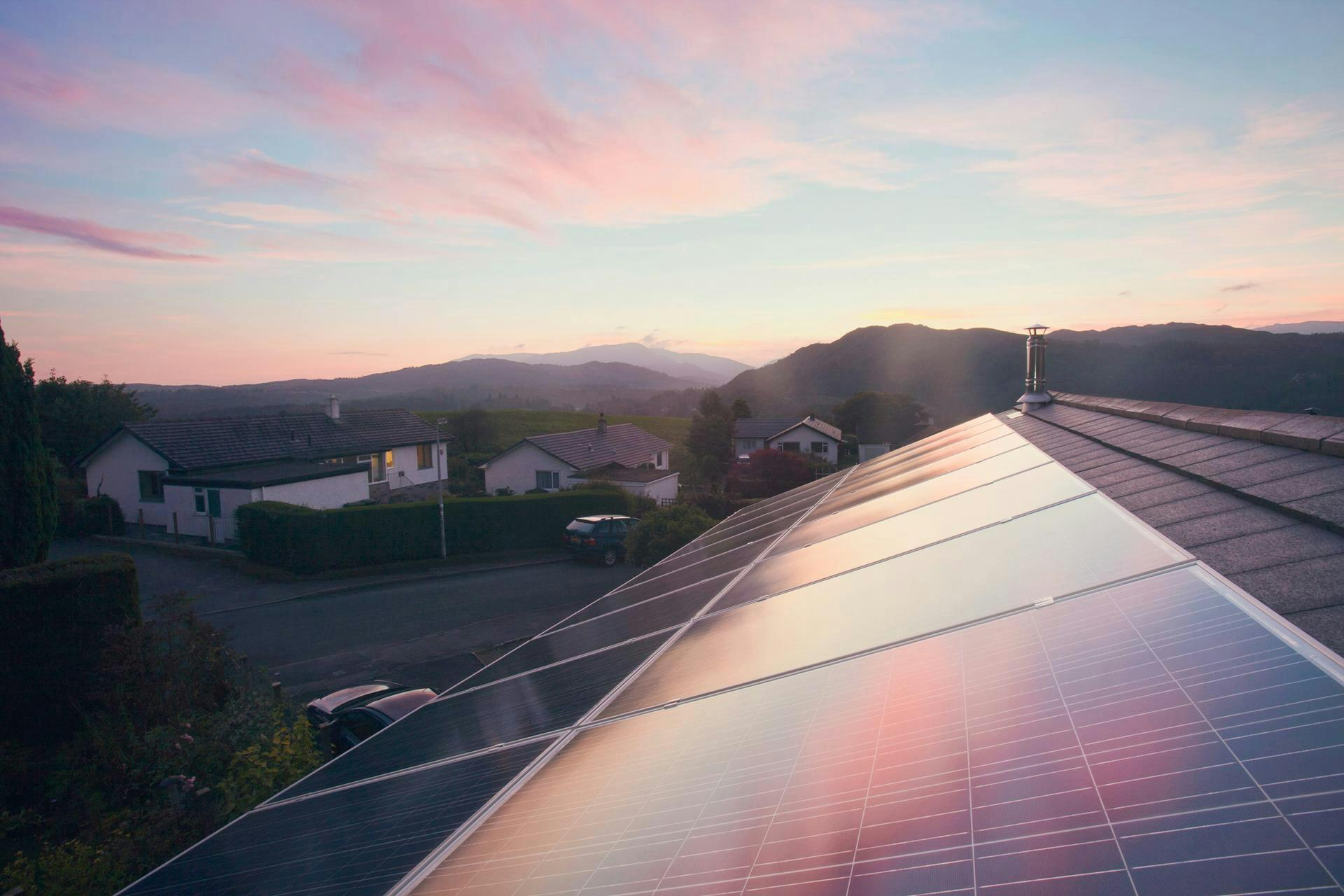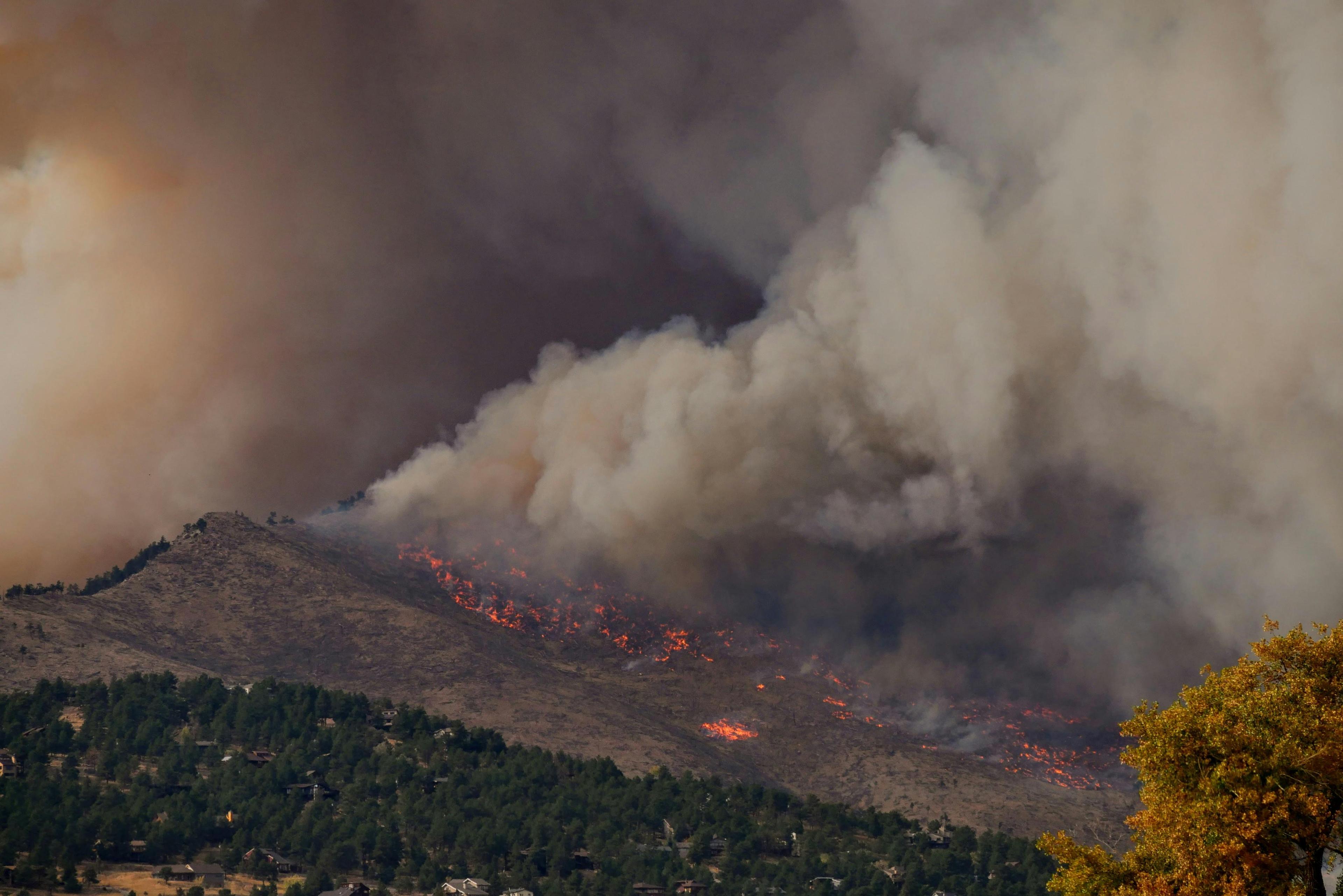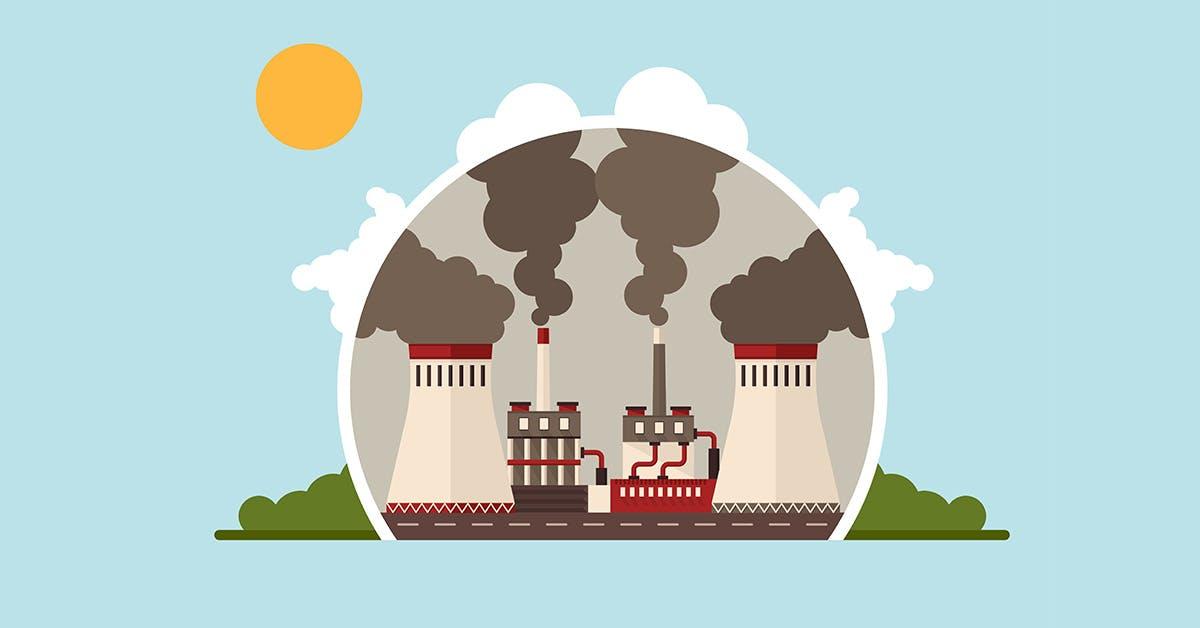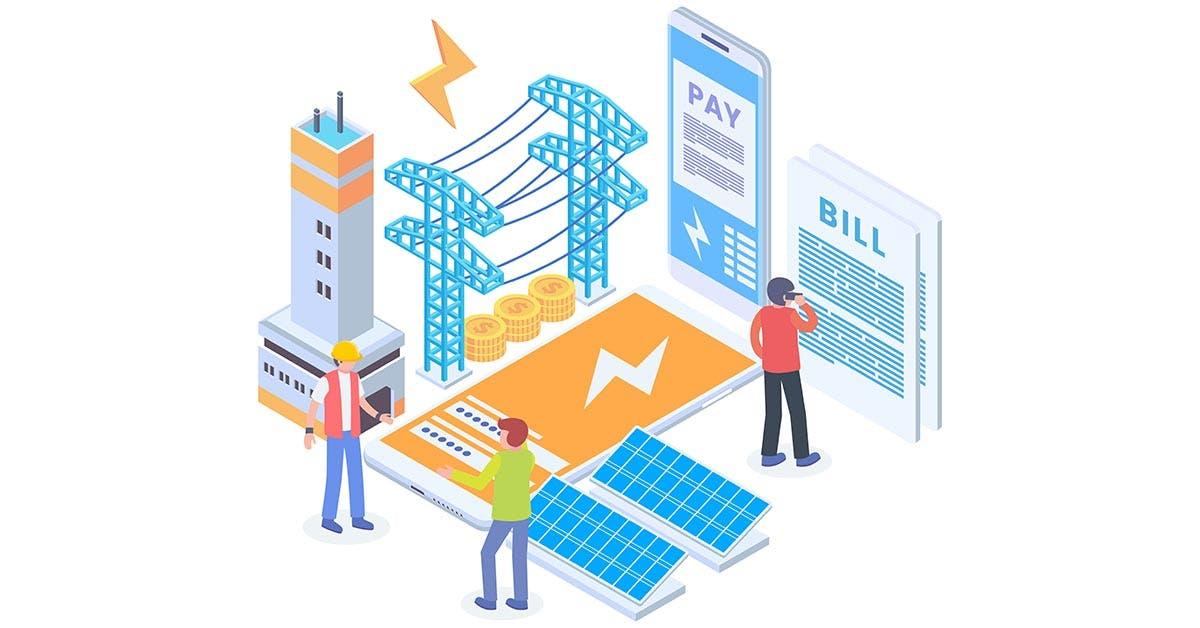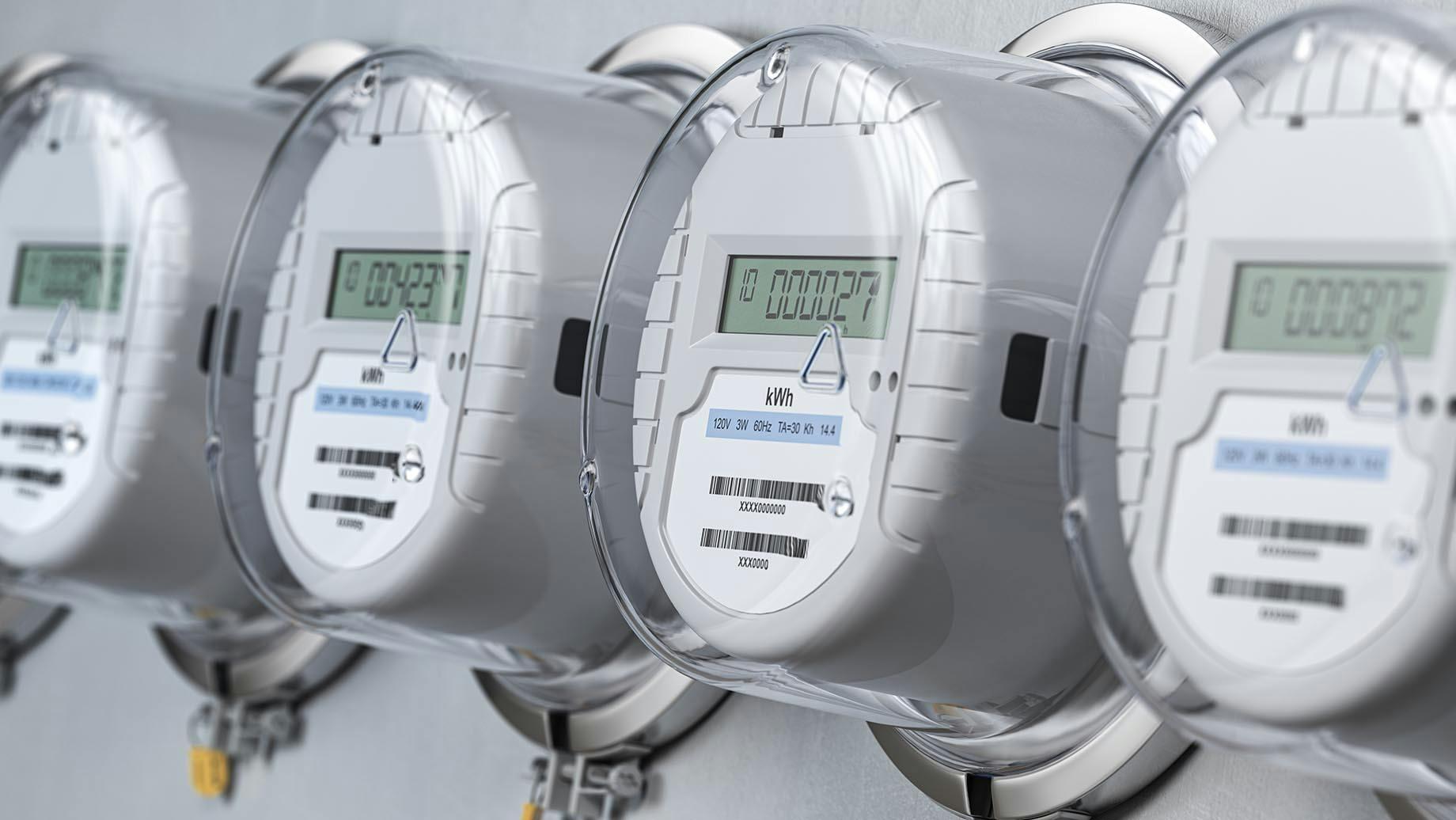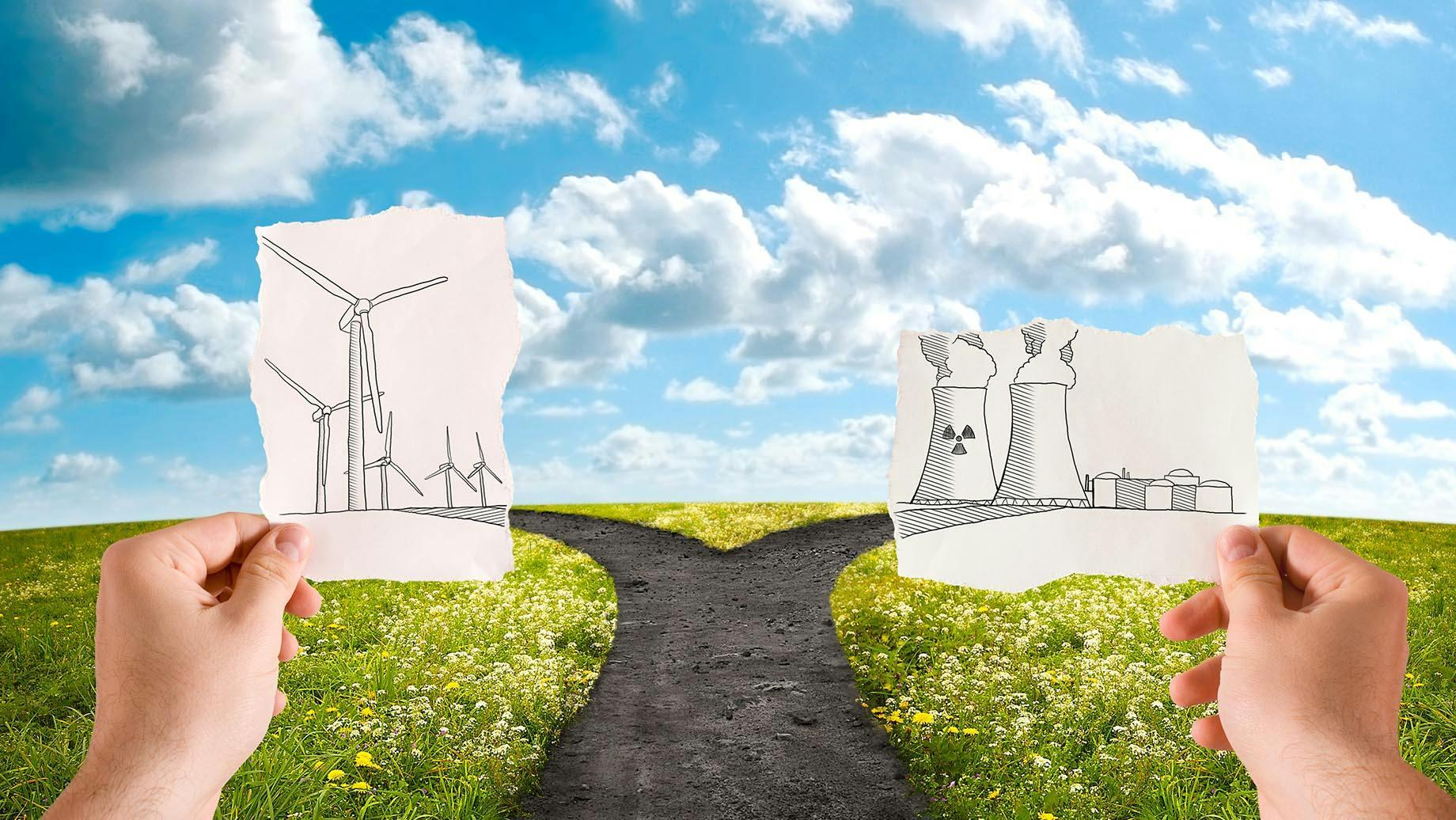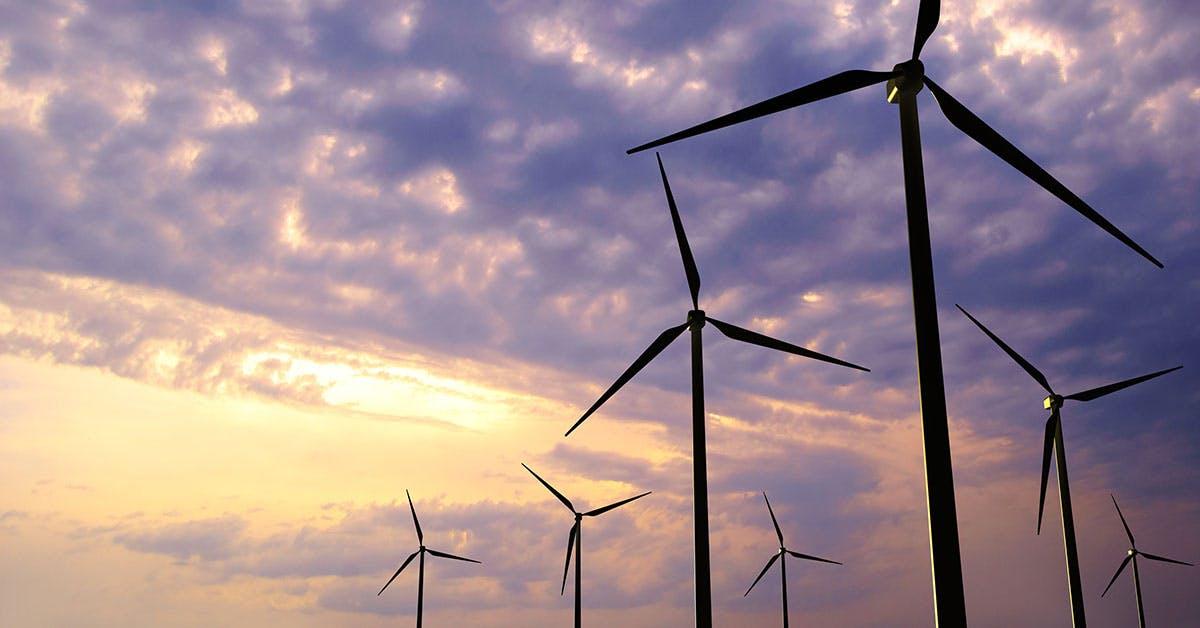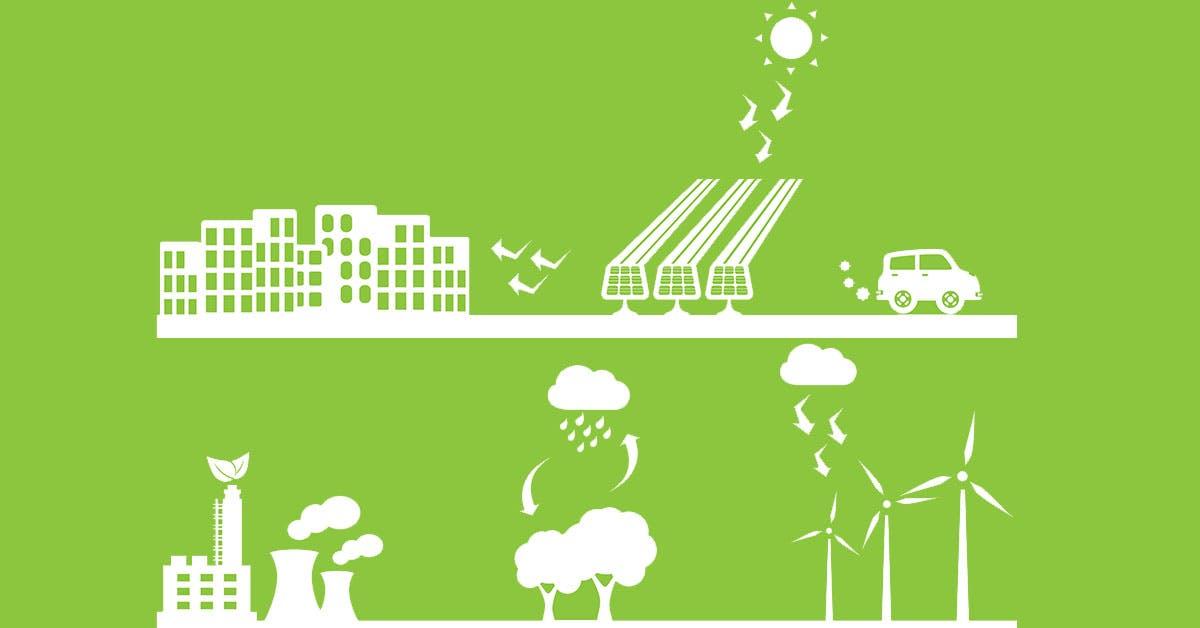
Disadvantages of Fossil Fuels: Some Pros But Mostly Cons of Fossil Fuels & Oil Use
Inspire Clean Energy
0 min read
category: Clean Energy 101
Don't worry about climate change— do something about it.
Our clean energy plans are the easiest way to reduce your home's carbon footprint.
Switch to clean energyFossil fuels have helped our civilization get to where it is today. We use them to power our homes, factories, and vehicles—but that’s changing. With an increasing understanding of the detrimental effects of fossil fuels on the planet—like air pollution and climate change—it has become clear that the sooner we can ditch fossil fuels, the better.
That’s why we are driving the change to clean, renewable energy. Our customers are passionate about protecting the environment from further harm. If you want to join us in our fight for a cleaner world, learn about changing energy plans.
- What are fossil fuels?
- What are the disadvantages of using fossil fuels?
- Do the advantages of fossil fuels outweigh the disadvantages?
- What alternatives are out there without the disadvantages?
- What is coal?
- What is crude oil?
- What is natural gas?
- What are the advantages of using fossil fuels?
- How do fossil fuels pollute the environment?
- What are the benefits of replacing fossil fuels with renewable energy?
- How much energy comes from fossil fuels, and can renewable energy replace it?
- How can businesses reduce pollution from fossil fuels?
- How can individuals reduce pollution from fossil fuels?
- Give up fossil fuels for good
- Frequently asked questions about fossil fuels
What are fossil fuels?
You may have heard people joke about how fossil fuels are essentially dead dinosaurs, and that’s actually not too far from the truth! Fossil fuels are plant and animal matter that died millions of years ago and have been subjected to heat and pressure over millions of years.
Fossil fuels come in three major groups:
- Coal – mined and fuels 1/3 of the world’s power (largest consumers are China, India, and the U.S.)
- Crude oil – pumped up through the earth and split through refining to produce different oils we use for fuel (like gasoline, diesel, kerosene, and such)
- Natural gas – mainly methane, which is found near oil deposits (caused the development of the controversial fracking process)
What are the disadvantages of using fossil fuels?
So now we know why they’re still in use, but why are we so keen to replace them?
1. Fossil fuels are nonrenewable: Once you burn a gallon of oil, it’s gone for good—and fossil fuels will run out. It’s estimated we have just 100 years of coal production left, 50 years of crude oil, and 50 years of natural gas. This is a major problem for us, our children, and our grandchildren. That’s why we help our customers switch to clean, renewable energy plans that replace harmful energy sources. If you want to join our fight, learn more about our energy plans.
2. Dangerous to produce: Mining is a potentially dangerous industry in which tragic disasters can happen. Despite developments in machinery, there’s still a human element that can come at a huge cost. Mining disasters aren’t a thing of the past. The Upper Big Branch Mine disaster in West Virginia in 2010 killed 29 men, the Sago Mine disaster in the same state just four years before cost 12 lives, and the Kohistan mine collapse in Afghanistan in 2019 cost at least 30 lives. Miners won’t stop being buried in mine collapses—or caught in mine fires—until we make the switch to cleaner electricity plans.
3. Refinery and oil rig explosions: Both oil and gas are volatile and flammable, and the instances of refineries and oil rigs exploding or occasions when fires break out are numerous. It is not just the damage caused or the risk to the lives of employees and firefighters, but also the danger of the noxious gases that are liable to be released. It is estimated that the June 2019 fire at the Philadelphia Energy Solutions refinery resulted in over 5,000 pounds of the deadly gas hydrofluoric acid to be released into the air.
4. Water pollution and oil spills: We often only hear about huge oil spill disasters, like the Exxon Valdez disaster in Alaska back in 1989, but small oil spills happen often. Crude oil kills almost everything it touches and can be devastating to local wildlife. The International Tankers Owners Pollution Federation estimates that between 1970 and 2016, spillages of oil totaled 5.73 million tons.
4. Water table poisoning from fracking: Fracking is a method of extraction that is incredibly harmful to the environment, but one serious worry is the pollution of our water table. It shouldn’t happen but can if proper precautions are not taken or if mistakes are made, and it can poison our water supply.
5. Air pollution and smog: Smog is caused when sunlight reacts with nitrogen oxide and volatile organic compounds (VOCs) in the atmosphere. Nitrogen oxide is a key emission from vehicles, factories, and coal power plants. VOCs are released from gasoline, paints, and solvents. The resulting photochemical smog is a health hazard all over the planet—particularly so in newly industrialized countries—and is believed to cause respiratory diseases like asthma and lung cancer. Changing energy plans even on a personal level will help give the world’s cities cleaner air.
6. Acid rain: Acid rain is formed by a chemical reaction between sulfur dioxide and nitrogen oxides mixing with water, oxygen, and other chemicals high in the atmosphere. The pollutants are mostly produced by fossil-fuel-burning power plants. Acid rain is a serious problem and damages trees, lakes, rivers, architecture, statues, crops, and wildlife.
8. Mercury emissions: Mercury is highly toxic and extremely damaging to the environment. A major contributor to mercury pollution is the combustion of coal. Coal-burning results in approximately 475,000 kg of mercury being released into the atmosphere.
9. Global warming: Global warming, or climate change, is still denied by some, but science almost unequivocally supports it. The major cause is the release of greenhouse gases into the atmosphere. The burning of fossil fuels produces vast quantities of carbon dioxide and is a massive contributor to the growing problem the world faces. The burning of coal is thought to contribute 44 percent of the world’s carbon dioxide emissions. Around the world, petrol (gasoline) alone is said to be responsible for a third of carbon emissions. Though cleaner than both coal and crude oil, natural gas is responsible for around 20 percent of our carbon emissions. Using clean energy sources will go a long way toward halting and reversing the effects of global warming.
10. Land use and the impact on wildlife: The process of finding, extracting, producing, and transporting fossil fuels has no regard for local wildlife. In many parts of the world, if there are fossil fuels, everything else must move out of the way so it can be extracted. Habitats are regularly destroyed, and massive scars—created by surface mines and other extraction methods—are left on the landscape.
To access clean energy sources, it’s not necessary to bore down into the earth’s crust, or destroy habitats. The footprint of clean energy farms is no different than that of farming, and many forms can be done out at sea. Plus, once a renewable energy farm has been set up, it can continue to be maintained in that location forever.
Do the advantages of fossil fuels outweigh the disadvantages?
In today's world, nonrenewable energy sources are unsustainable. They destroy the environment, both what we can see and that we can’t. magine a world in which people who live in cities don’t have to worry about the level of pollution when they walk outside. One where our energy does not come at a cost.
That’s the world we and our customers are committed to living in. We aren’t willing to compromise our health or the health of the planet simply because it’s easier not to think about it.
While fossil fuels do provide us with a source of cheap energy and may minimize the cost of utilities in the short run, there are many other costs associated with fossil fuels that we need to account for. For instance, climate change has contributed to more frequent extreme weather events. Between 2016 and 2020, it is estimated that the United States spent approximately $606.9 billion on extreme weather events. Additionally, in order to protect coastal communities from rising sea levels, it is estimated that the U.S. will spend about $400 billion over the course of the next 20 years.
Of course, the economic cost is only one factor to consider when weighing the pros and cons of fossil fuels. There is also a human and environmental cost associated with fossil fuels that is hard to represent in terms of a dollar amount. Thus, in many respects, the disadvantages of oil and other fossil fuels as we use them today outweigh the benefits.
What alternatives are out there without the disadvantages?
Clean energy technology has come a long way in the last 20 years. It now produces approximately 11 percent of all energy in the U.S., and infrastructure is growing fast to allow it to take on a far greater percentage.
The top producers of clean energy are:
1. Solar energy: Solar power (using the light of the sun to produce electricity) is a major player in the clean energy game and is ready to step up to help replace fossil fuels. Solar energy capacity increased by 94 GW in 2018, up 24 percent from the previous year, and is growing fast.
2. Geothermal energy: Using the internal heat of the planet as a power source is an exciting recent development, and small- and large-scale installations will make a real impact in the coming years.
3. Wind energy: The wind turbine has revolutionized electricity production throughout the world. The wind is free, and the operational costs are almost zero. From 2000 to 2015, capacity increased by a factor of 25 to 430,000 MW. By 2018 it stood at 546,388 MW, and with only 1 MW required to power several hundred homes, more and more people are now able to use renewable energy. Wind energy is currently a source of clean energy we purchase on behalf of our customers.
4. Water energy: Hydroelectric is another fast-growing source of energy. Wave power is a more recent development, but an exhilarating one, and may prove to play a major part in the move to renewable energy.
What is coal?
Coal is a solid, carbon-rich rock that is classified into four types based on its carbon content: lignite, bituminous, sub-bituminous, and anthracite. Coal is a combustible sedimentary rock with a high carbon and hydrocarbon content. Coal is made up of the energy stored by plants that thrived in marshy forests hundreds of millions of years ago. Because coal takes so long to create, it is classified as a nonrenewable energy source.
Bituminous and sub-bituminous coal account for almost all the coal burning in the United States. However, regardless of its type, all coal is filthy and the most carbon-intensive fossil fuel we can burn in terms of emissions. Sulfur dioxide, nitrogen oxides, mercury, and particulate matter are all produced by burning coal, and they are all harmful to human and environmental health. Another dangerous coal waste product is coal ash, which is difficult to recycle and can pollute waterways. According to the Environmental Protection Agency (EPA), the United States generates 130 million tons of coal ash per year.
What is crude oil?
Crude oil, often known as petroleum, is a liquid fossil fuel primarily comprised of hydrocarbons. Oil can be found in subsurface reservoirs, sedimentary rock fissures, crevices, pores, and tar sands on the surface. Crude oil is obtained by drilling or mining into the earth. Oil is then extracted and transported to refineries by tankers, trains, trucks, or pipelines, where it is processed into usable fuels like gasoline, propane, kerosene, jet fuel, and even liquids that are used to create household goods like plastics and paint.
Unfortunately, the extraction process causes a slew of environmental and health issues, namely air and water pollution. Oil combustion is a substantial source of greenhouse gas emissions, accounting for 45 percent of all energy-related carbon dioxide emissions in the United States in 2020. In addition, pipelines, offshore drilling wells, and related equipment frequently leak, polluting oceans, marshes, freshwater sources, and other ecosystems.
What is natural gas?
Natural gas is classified as conventional or unconventional, depending on where it is found underground. Natural gas can be found in porous and permeable rock beds or mixed into oil reservoirs, and it is accessed using ordinary drilling techniques. Unconventional natural gas is any type of gas that is too difficult or expensive to recover through normal drilling, necessitating the use of a unique stimulation technique like fracking.
Since 2009, the United States has been the world's top producer of natural gas and the largest consumer of it, thanks to the invention and advancement of methods like fracking. Natural gas, which is abundant in the United States, provides about 30 percent of the country's energy demands and is the primary source of electricity.
Obtaining natural gas requires drilling, as it's collected from the earth. Fracking requires injecting high-pressure water, chemicals, and sand into a well, which cracks the rock, releasing natural gas. This method can be a drain on resources, as it requires anywhere from 1.5 million to 16 million gallons of water per well. Fracking also has the potential to harm nearby waterways, produce toxic wastewater, and induce earthquakes.
What are the advantages of using fossil fuels?
So, if we know fossil fuels are bad for the environment, why are they still in use and what are the advantages of fossil fuels?
1. A cheap source of energy: Fossil fuels are relatively cheap. It’s relatively easy to find and produce these fuels, and there was a huge supply. Plus, since fossil fuels have fueled our world for 250 years, there’s infrastructure in place to distribute them cheaply. That is now changing. As the supplies dwindle, the cost of finding new deposits goes up, and the expense involved in production skyrockets. Deeper wells and mines in more hostile environments equals more expensive energy— not to mention an even higher cost to the environment.
2. Reliability: Fossil fuels are dependable…at the moment. There are plenty of coalfields and large—if declining—deposits of oil and gas and, as fracking demonstrates, research into extraction is becoming ever more advanced.
3. Abundance: While fossil fuels were previously regarded as almost infinite, we now understand there is not a never-ending supply, and certainly not enough to fuel our growing population. However, the date scientists believe we will run out is far enough away that many in power don’t bother worrying about it.
4. Useful byproducts: Plastics have revolutionized the way we live. Look around—how many plastic objects surround you? You’re likely touching some form of plastic right now. Of course, plastics have their problems, especially when used as a single-use item and thrown out afterward. Without fossil fuels, we would not have plastic.
How do fossil fuels pollute the environment?
Because they are generated from the petrified, buried remains of plants and animals that existed millions of years ago, coal, crude oil, and natural gas are all considered fossil fuels. Fossil fuels have a high carbon content due to their origins. Using fossil fuels for energy has taken a huge toll on humans and the environment, as they contribute to air pollution, water pollution, and global warming.
Nitrogen pollution impacts not just the quality of the air we breathe, but the land and water as well. While nitrogen is the most abundant element in the air and is necessary for plant and animal life to survive, human activities that produce nitrogen—such as electric power generation, industrialization, transportation, and agriculture— disrupt the natural equilibrium of nitrogen in the ecosystem.
When fossil fuels are burned, nitrogen oxides are released into the atmosphere, which contributes to smog and acid rain. Nitrogen oxides are the most prevalent nitrogen-related chemicals added to the air by human activity. The combustion of fossil fuels connected with the transportation industry accounts for most nitrogen oxides emitted in the U.S. as a result of human activity.
What are the benefits of replacing fossil fuels with renewable energy?
Replacing fossil fuels with environmentally friendly renewable energy offers significant benefits. Renewable energy sources like wind and solar take less of a toll on the environment and provide more usable energy than fossil fuels while also being more affordable. We still have a ways to go to encourage clean energy usage and reduce reliance on nonrenewable energy. With the government's help and environmentally aware individuals, we can reduce fossil fuel usage and make the switch to renewable energy.
How much energy comes from fossil fuels, and can renewable energy replace it?
Most coal and fossil fuels came from millions of years ago. Petroleum products account for around 37 percent of total energy consumption in the United States, which is the largest consumer of transportation fuels. The United States has been on an upward trend for more than a decade, as a result of improving horizontal drilling techniques and increasing hydraulic fracturing output.
Despite the fact that the market share of natural gas has increased significantly in the last decade, renewable energy has grown at a quicker rate than any other fossil fuel. It's logical to expect that the United States will continue to invest in and expand renewable energy, where the percentage of renewables will take share away from fossil fuels, and the country will lean more into clean energy for the foreseeable future.
How can businesses reduce pollution from fossil fuels?
Businesses can reduce pollution by implementing emissions management and reduction, boosting energy efficiency, and investing in renewable energy. Environmentally aware companies are creating annual greenhouse gas inventories and setting long-term emissions reduction objectives to better understand and control their greenhouse gas emissions.
Another way for businesses to reduce their emissions is by offering employees more flexible hours. Companies can reduce pollution with fewer cars on the road by allowing applicable employees to work from home. Cars emit a lot of pollution as commuters drive to work, which indirectly adds to a company's carbon footprint. By providing a flexible schedule where work-from-home days are encouraged whenever possible, the amount of pollution produced by employees due to commuting will be reduced.
How can individuals reduce pollution from fossil fuels?
Individuals can do their part to reduce pollution by conserving energy and minimizing vehicle miles. Acid rain, harmful greenhouse gases, and health concerns are all caused by air pollution from fossil fuel usage. Conserving energy is one key measure you can take to reduce airborne pollution. Turning off lights, computers, televisions, and other electrical equipment when not in use is an easy way to do this.
You can purchase energy-efficient appliances such as air conditioners, heaters, refrigerators, and washing machines. Products and buildings that have earned the Energy Star label consume at least 10 percent less energy than normal models. With energy-efficient appliances, you can reduce your carbon footprint while also lowering your electric bills.
As previously stated, automobiles emit huge volumes of nitrogen oxide, which harm the environment. Consider minimizing the amount of time you drive, carpool, or take public transit to help reduce air pollution from cars. Think about walking or biking instead of driving whenever possible. And, as always, reduce, reuse, and recycle.
If you’re looking to make a positive impact on the planet, consider switching your home's electricity supply to Inspire. When you become an Inspire member, not only will you have access to 100 percent clean energy and help avoid carbon emissions, you will receive a predictable monthly price for your electricity supply to reduce bill volatility throughout the year. Just one year of accessing clean energy with Inspire can have an impact greater than seven years of recycling. And that’s not all—for every year you are an Inspire member, we'll provide clean energy solutions to one person in critical need through our Brighter World Project with GivePower.
Give up fossil fuels for good
Fossil fuels are a finite resource and need to be replaced as soon as possible to prevent further harm to the environment. Clean energy is the only way forward. Coal, oil, and gas pollute and harm the planet. If we want our children and their children to have a healthy world to live in, we have to invest in new technologies that are clean, renewable, and safe.
It’s also never been easier to take control of your energy sources. Unlike investing in an electric vehicle, switching your energy supply to Inspire doesn’t require thousands of dollars or the space to keep one. In just a few minutes, you can make the switch to clean energy with us.
Change energy plans today—the planet will thank you.
We are a renewable energy company passionate about empowering our customers to do the right thing for the environment, themselves, and their families. We want to make it easy and affordable to choose clean energy.
Frequently asked questions about fossil fuels:
What are the disadvantages of using fossil fuels as an energy source?
Burning fossil fuels releases harmful gases that contribute to climate change. As if that’s not bad enough, fossil fuels will run out within the next century or so due to our heavy reliance on them.
Where does carbon dioxide come from?
Carbon dioxide is a byproduct of many processes, from burning fossil fuels to the air we exhale. As the most prominent greenhouse gas, carbon dioxide plays a key role in climate change. When carbon dioxide is released into the atmosphere due to the burning of fossil fuels, it stays in the atmosphere and absorbs energy from the sun. This, in turn, causes temperature on the planet to gradually rise, a phenomenon known as global warming.
What is the biggest problem with oil?
There are a few major problems with oil. First of all, the burning of oil leads to increased greenhouse gas emissions and pollution that can damage air quality and contribute to health problems. Additionally, the extraction of oil can damage the environment in a way that’s often irreversible. This creates a disruption in wildlife habitats, which can lead to unforeseen consequences for the environment.
Why are fossil fuels bad?
There are many disadvantages of fossil fuels. Fossil fuels are an unsustainable source of energy that make a lasting negative impact on the environment. But, in short, the problem with fossil fuels is they require disrupting the earth to source and produce harmful byproducts.
Is renewable energy better than fossil fuels?
Yes! Renewable energy doesn’t harm the environment, and we can continue producing it forever. Using alternative energy sources like solar, wind, geothermal, and hydroelectric, we can sustainably produce energy without having to deal with the cons of fossil fuels.
Why can’t we stop using fossil fuels?
We can, it’s just going to take time. There’s a lot of money in fossil fuels, so consumers have to vote with their wallet and show energy companies they want clean energy. With the advancement of clean energy infrastructure, there will be a shift away from fossil fuels, which will allow us to phase out their usage.
What are the disadvantages of using fossil fuels?
So now we know why they’re still in use, but why are we so keen to replace them?
It's not necessary to bore down into the earth's crust or destroy habitats to access clean energy sources. The footprint of clean energy farms is no different from that of farming, and many forms can be done at sea. Plus, once a renewable energy farm has been set up, it can continue to be maintained in that location forever.
Do the advantages of fossil fuels outweigh the disadvantages?
In today's world, nonrenewable energy sources are unsustainable. They destroy the environment, both what we can see and what we can’t. imagine a world where people who live in cities don’t have to worry about the level of pollution when they walk outside. One where our energy does not come at a cost.
That’s the world we and our customers are committed to living in. We aren’t willing to compromise our health or the health of the planet simply because it’s easier not to think about it.
What alternatives are out there without the disadvantages?
Clean energy technology has come a long way in the last 20 years. It now produces approximately 11% of all energy in the U.S., and infrastructure is growing fast to allow it to take on a far greater percentage.
The top producers of clean energy are:
Frequently asked questions about fossil fuels:
What is coal?
Coal is a solid, carbon-rich rock that is classified into four types based on its carbon content: lignite, bituminous, sub-bituminous, and anthracite. Coal is a combustible sedimentary rock with a high carbon and hydrocarbon content. Coal is made up of the energy stored by plants that thrived in marshy forests hundreds of millions of years ago. Because coal takes so long to create, it is classified as a nonrenewable energy source.
Bituminous and sub-bituminous coal account for almost all the coal burning in the United States. However, regardless of its type, all coal is filthy and the most carbon-intensive fossil fuel we can burn in terms of emissions. Sulfur dioxide, nitrogen oxides, mercury, and particulate matter are all produced by burning coal, and they are all harmful to human and environmental health. Another dangerous coal waste product is coal ash, which is difficult to recycle and can pollute waterways. According to the Environmental Protection Agency (EPA), the United States generates 130 million tons of coal ash per year.
What is crude oil?
Crude oil, often known as petroleum, is a liquid fossil fuel primarily comprised of hydrocarbons. Oil can be found in subsurface reservoirs, sedimentary rock fissures, crevices, pores, and tar sands on the surface. Crude oil is obtained by drilling or mining into the earth. Oil is then extracted and transported to refineries by tankers, trains, trucks, or pipelines, where it is processed into usable fuels like gasoline, propane, kerosene, jet fuel, and even liquids that are used to create household goods like plastics and paint.
Unfortunately, the extraction process causes a slew of environmental and health issues, namely air and water pollution. Oil combustion is a substantial source of greenhouse gas emissions, accounting for 45 percent of all energy-related carbon dioxide emissions in the United States in 2020. In addition, pipelines, offshore drilling wells, and related equipment frequently leak, polluting oceans, marshes, freshwater sources, and other ecosystems.
What is natural gas?
Natural gas is classified as conventional or unconventional, depending on where it is found underground. Natural gas can be found in porous and permeable rock beds or mixed into oil reservoirs, and it is accessed using ordinary drilling techniques. Unconventional natural gas is any type of gas that is too difficult or expensive to recover through normal drilling, necessitating the use of a unique stimulation technique like fracking.
Since 2009, the United States has been the world's top producer of natural gas and the largest consumer of it, thanks to the invention and advancement of methods like fracking. Natural gas, which is abundant in the United States, provides about 30 percent of the country's energy demands and is the primary source of electricity.
Obtaining natural gas requires drilling, as it's collected from the earth. Fracking requires injecting high-pressure water, chemicals, and sand into a well, which cracks the rock, releasing natural gas. This method can be a drain on resources, as it requires anywhere from 1.5 million to 16 million gallons of water per well. Fracking also has the potential to harm nearby waterways, produce toxic wastewater, and induce earthquakes.
How do fossil fuels pollute the environment?
Because they are generated from the petrified, buried remains of plants and animals that existed millions of years ago, coal, crude oil, and natural gas are all considered fossil fuels. Fossil fuels have a high carbon content due to their origins. Using fossil fuels for energy has taken a huge toll on humans and the environment, as they contribute to air pollution, water pollution, and global warming.
Nitrogen pollution impacts not just the quality of the air we breathe, but the land and water as well. While nitrogen is the most abundant element in the air and is necessary for plant and animal life to survive, human activities that produce nitrogen—such as electric power generation, industrialization, transportation, and agriculture— disrupt the natural equilibrium of nitrogen in the ecosystem.
When fossil fuels are burned, nitrogen oxides are released into the atmosphere, contributing to smog and acid rain. Nitrogen oxides are the most prevalent nitrogen-related chemicals added to the air by human activity. The combustion of fossil fuels connected with the transportation industry accounts for most nitrogen oxides emitted in the U.S. as a result of human activity.
What are the benefits of replacing fossil fuels with renewable energy?
Replacing fossil fuels with environmentally friendly renewable energy offers significant benefits. Renewable energy sources like wind and solar take less of a toll on the environment and provide more usable energy than fossil fuels while also being more affordable. We still have a ways to go to encourage clean energy usage and reduce reliance on nonrenewable energy. But with the government's help and environmentally aware individuals, we can reduce fossil fuel usage and make the switch to renewable energy.
How much energy comes from fossil fuels, and can renewable energy replace it?
Most coal and fossil fuels came from millions of years ago. Petroleum products account for around 37 percent of total energy consumption in the United States, which is the largest consumer of transportation fuels. The United States has been on an upward trend for more than a decade, as a result of improving horizontal drilling techniques and increasing hydraulic fracturing output.
Despite the fact that the market share of natural gas has increased significantly in the last decade, renewable energy has grown at a quicker rate than any other fossil fuel. It's logical to expect that the United States will continue to invest in and expand renewable energy, where the percentage of renewables will take the share away from fossil fuels, and the country will lean more into clean energy for the foreseeable future.
How can businesses reduce pollution from fossil fuels?
Businesses can reduce pollution by implementing emissions management and reduction, boosting energy efficiency, and investing in renewable energy. Environmentally aware companies are creating annual greenhouse gas inventories and setting long-term emissions reduction objectives to better understand and control their greenhouse gas emissions.
Another way for businesses to reduce their emissions is by offering employees more flexible hours. Companies can reduce pollution with fewer cars on the road by allowing applicable employees to work from home. Cars emit a lot of pollution as commuters drive to work, which indirectly adds to a company's carbon footprint. By providing a flexible schedule where work-from-home days are encouraged whenever possible, the amount of pollution produced by employees due to commuting will be reduced.
How can individuals reduce pollution from fossil fuels?
Individuals can do their part to reduce pollution by conserving energy and minimizing vehicle miles. Acid rain, harmful greenhouse gases, and health concerns are all caused by air pollution from fossil fuel usage. Conserving energy is one key measure you can take to reduce airborne nutrient pollution. Turning off lights, computers, televisions, and other electrical equipment when not in use is one way to do this.
You can purchase energy-efficient appliances such as air-conditioners, heaters, refrigerators, and washing machines. Products and buildings that have earned the Energy Star label consume at least 10 percent less energy than normal models.
As previously stated, automobiles emit huge volumes of nitrogen oxide, which harm the environment. Consider minimizing the amount of time you drive, carpool, or take public transit to help reduce air pollution from cars. Think about walking or biking instead of driving whenever possible. And, as always, reduce, reuse, and recycle.
If you’re looking to make a positive impact on the planet, consider switching your home's electricity supply to Inspire. When you become an Inspire member, not only will you have access to 100 percent clean energy and help avoid carbon emissions, you will receive a predictable monthly price for your electricity supply to reduce bill volatility throughout the year. Just one year of accessing clean energy with Inspire can have an impact greater than seven years of recycling. And that’s not all—for every year you are an Inspire member, we'll provide clean energy solutions to one person in critical need through our Brighter World Project with GivePower.
Give up fossil fuels for good
Fossil fuels are a finite resource and need to be replaced as soon as possible to prevent further harm to the environment. Clean energy is the only way forward. Coal, oil, and gas pollute and harm the planet. If we want our children and their children to have a healthy world to live in, we have to invest in the new technologies that are clean, renewable, and safe.
It’s also never been easier to take control of your energy sources, and, unlike investing in an electric vehicle, switching your energy supply to Inspire doesn’t require thousands of dollars or the space to keep one. In just a few minutes, you can make the switch to clean energy with us.
Change energy plans today—the planet will thank you.
We are a renewable energy company passionate about empowering our customers to do the right thing for the environment, themselves, and their families. We want to make it easy and affordable to choose clean energy.
Don't worry about climate change— do something about it.
Our clean energy plans are the easiest way to reduce your home's carbon footprint.
Switch to clean energy
Inspire Clean Energy
We're on a mission to transform the way people access clean energy and accelerate a net-zero carbon future.
Learn more about Inspire →Explore more
Recent Posts
Top Articles



